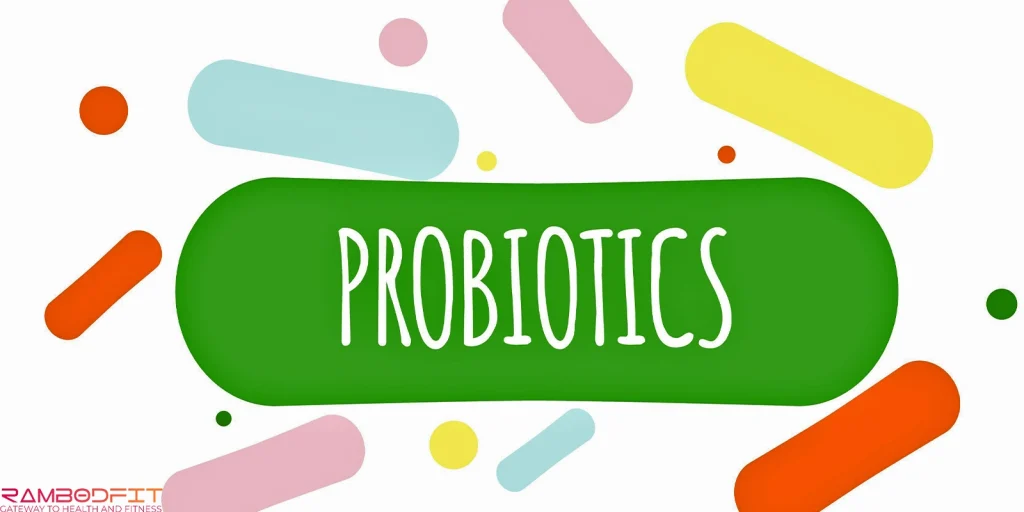


A couple of years back, I honestly thought “gut health” was just code for “don’t eat stuff that makes you fart at work.” Maybe chuck in a probiotic yogurt if I went a bit too hard on the late-night kebab. That was the extent of my expertise until I started learning how deeply gut microbiome mental health influences everything from mood to digestion.
But then, outta nowhere, things started getting weird. After this wild, stress-packed stretch at work, I got hit with all sorts of random symptoms—brain fog that made me feel like I was running Windows 95 upstairs, bizarre cravings, mood tanked, and I was tired, like, all the damn time. Ran some blood tests—everything looked fine. Sleep wasn’t tragic. I wasn’t living on pizza and Red Bull (well, not every day). Still, something felt seriously off. It was clear that my gut microbiome and mental health were out of sync.
That’s when I tripped down the rabbit hole of “the gut microbiome.” And, okay, let’s be real—when you first hear that phrase, it sounds like something cooked up by a bored sci-fi writer. But, nope. Turns out you are basically a walking ecosystem, housing trillions—yep, trillions—of little critters: bacteria, viruses, fungi, you name it, all chilling out in your gut.
And these guys? They’re not just tagging along for the ride. They’re busy running the show: digestion, your moods, your immune system, metabolism, even your brainpower. No joke—scientists now call your gut the “second brain.” (Which is hilarious and also a little terrifying.) This connection is a cornerstone of gut microbiome mental health.
Forget those cheesy “wellness” ads. This is hard science, not influencer nonsense. Understanding and supporting gut microbiome mental health is key.
So, buckle up. I’m about to break down seven wild ways your gut microbiome is calling the shots on your body and brain—and, more importantly, what you can do about it. Each point shines a light on gut microbiome mental health.
Here’s Rambodfit, and we’re about to get real. Let’s do this—science, stories, and all the messy, honest bits in between, with gut microbiome mental health front and center.
Table of Contents

Alright, so, picture this: inside your gut, there’s a microscopic rave going on. Bacteria, viruses, fungi, even some weird archaea you’ve never heard of—all packed into your digestive tract, mostly chilling in your large intestine. It’s almost like a wild, invisible rainforest in there. Seriously, over a thousand different species are squatting in your gut, and together they weigh about two kilos. That’s heavier than your brain, which is kinda wild if you think about it. This biodiversity plays a huge role in gut microbiome mental health.
But here’s the deal—why does any of this actually matter?
Well, your microbiome isn’t just crashing at your place for free. It’s constantly hustling alongside your cells. It’s breaking down food, grabbing vitamins you’d otherwise miss, keeping your immune system from freaking out, and even whipping up neurotransmitters like serotonin. By the way, about 90% of your serotonin—the stuff that keeps your mood in check—gets brewed right there in your gut. Not in your head. Wild, right? This production is directly linked to gut microbiome mental health.
If this microscopic crew gets out of balance (the fancy word is “dysbiosis”), things can go downhill fast. We’re talking stomach issues, immune problems, even mental health taking a nosedive, a clear sign that gut microbiome mental health is compromised.
So, yeah, your gut’s a lot more important than most folks realize. Let’s get into the seven biggest ways this microscopic zoo inside you is running the show.
So here’s the deal: your stomach and intestines do their thing with food—yeah, the whole churning, acid bath, all that jazz. But honestly? The real MVPs are your gut microbes. Those little guys are basically the cleanup crew, rolling in to finish what your body started, and their efficiency directly influences gut microbiome mental health.
They’re the ones who take all that complicated stuff—like fiber and those weird, tough starches your body shrugs at—and turn it into short-chain fatty acids. Sounds fancy, but we’re talking butyrate, propionate, and acetate. These are like fuel for your gut lining. They chill out inflammation, help you not snack your face off every hour, and just generally keep things grooving down there.
And get this—they don’t stop there. These microbes are also busy whipping up vitamins, like K and the B-complex squad. Wanna keep your brain sharp and your energy up? Yeah, you need those to support your gut microbiome mental health.
Let me tell you, I messed this up once. I went on this super high-protein thing, basically living off chicken breasts and protein shakes. Guess what? Constipation city. Felt like I had zero energy too. Turns out, I was eating almost no fiber at all. My gut bacteria were basically on a hunger strike. So I tossed in some beans, oatmeal, even that weird psyllium husk stuff your grandma likes. Magic. Everything… started moving again, let’s just say. That experience opened my eyes to how crucial gut microbiome mental health really is.
So, get this—about 70% of your immune system’s just hanging out in your gut. Seriously. It’s like your belly’s running its security squad, and your microbiome? That’s the front line, playing a vital role in gut microbiome mental health.
Are the good bugs down there? They’re not just chilling. They’re teaching your immune cells what’s cool (like pollen, no biggie) and what’s a full-on threat (think Salmonella, yikes). Plus, they play gatekeeper—hogging all the snacks and real estate so the bad guys can’t get comfy in your gut lining.
Here’s the wild part: people rocking a diverse gut crew are way less likely to deal with stuff like autoimmune chaos, allergies, or that endless, vague inflammation no one really wants to talk about. But if your gut’s out of whack? Your body’s so confused, it starts beefing with itself. Not great for gut microbiome mental health.
Take me, for example. Used to get sinus infections like clockwork every winter. Miserable. Then I ditched the junk and started eating stuff that actually feeds my gut. Haven’t had to pop antibiotics in, what, over three years now? Coincidence? Nah. Feels like my gut finally stopped sabotaging me, which dramatically improved my gut microbiome mental health.
Ever get that weird, twitchy feeling in your stomach before something big goes down? Yeah, that’s not just nerves—it’s literal biology. Turns out, your gut and your brain are chatting all the time, thanks to some wild thing called the “gut-brain axis.” There are nerves (shout-out to the vagus nerve), hormones, and some immune system wizardry all tangled up in this.
And hey, gut bacteria? Not just freeloaders. They’re busy making stuff like serotonin, dopamine, and GABA—basically the chemicals that decide whether you’re chill, stressed, or just completely spaced out. This chemical production is a core part of gut microbiome mental health.
Mess up your gut (hello, junk food and stress), and suddenly you’re not just dealing with indigestion. We’re talking anxiety, depression, brain fog, and yeah—even forgetting the basics when you need them most. This cascade is tightly linked to gut microbiome mental health.
Some scientists did this wild experiment where they gave depressed mice a “gut upgrade” (transplanted healthy bacteria), and—no joke—the mice perked up. Humans are next, apparently, and early results look pretty solid.
Let me tell you, I learned this the hard way. Once, I was grinding for this huge presentation, running on nothing but caffeine, energy bars, and zero sleep. I felt like a zombie. Worse, I couldn’t even feel basic stuff. Turns out, my gut was toast, and it took my emotions with it. This personal trial showed me firsthand how gut microbiome mental health matters.
Moral of the story? Your gut isn’t just a trash compactor for pizza and energy drinks. It’s basically your emotional control room. Treat it nicely to protect gut microbiome mental health.

Ever sit there watching your friend inhale a whole pizza while you gain five pounds just from sniffing the crust? Yeah, it’s not just cruel fate or a broken scale—it could be your gut bugs messing with you.
Turns out, if your gut microbiome is outta whack (the fancy term is “dysbiosis”), you’re more likely to deal with stuff like extra weight, type 2 diabetes, and that lovely thing called insulin resistance. Fun times, right? This is a critical aspect of gut microbiome mental health.
Some of those microscopic freeloaders in your gut are wizards at wringing every last calorie out of your food. Basically, you eat a cookie, and they make sure you get the maximum sugar rush. Others screw with your hormones, messing with how full you feel or how your blood sugar behaves. All of this intertwines with gut microbiome mental health.
And get this—scientists did this wild experiment where they took gut bacteria from an obese mouse and gave it to a skinny mouse. The skinny one ballooned up, even though it ate the same chow as before. I mean, what??!
Bottom line: your gut bacteria might have more control over your waistline than your willpower ever will. Kind of infuriating, honestly.
Alright, let’s get into the sugar vs. Candida showdown. This little fungus, Candida albicans, most folks don’t even know it’s chilling in their gut, just waiting for a weak moment. Usually, it’s cool, part of the gang… until your microbiome gets wrecked (thanks, stress and junk food), and suddenly it’s running the show. This imbalance threatens gut microbiome mental health.
When Candida throws a party, your gut suffers—less of those good short-chain fatty acids, which basically means your gut wall gets flimsy, your GLP-1 (that hormone that helps you feel full) tanks, and, oh joy, your sugar cravings crank up to eleven.
I had this buddy, right? Dude was busting his butt with HIIT every day, but that stubborn belly fat wouldn’t budge. We peeked at his meals—bam, yogurt loaded with sugar, fruit juice (basically liquid candy), white bread galore. Swapped those out for some actual food (hello, fermented veggies!), and boom—weight started dropping like it finally got the memo. Turns out, the real enemy was this sneaky microbial chaos that wreaked havoc on his gut microbiome and mental health.
Real talk: Sugar isn’t just about empty calories. You’re basically throwing a pizza party for the bad microbes and starving the good ones. Choose wisely to protect gut microbiome mental health.
Alright, here’s the deal: Antibiotics are miracle drugs—no question. They pull people back from the brink. But when you start popping them left and right? You’re not just nuking the bad guys; you’re carpet bombing your own gut’s friendly bacteria, too. It’s like, one minute your gut’s a lush jungle, next minute it’s Mad Max out there. This is a major challenge for gut microbiome mental health.
Seriously, one lousy course of antibiotics can leave your microbiome limping for months. Sometimes, honestly, it never really bounces back. If you’re someone who’s been on antibiotics a bunch (been there, done that, got the T-shirt), your gut’s probably waving a little white flag right now.
Now, I’m not saying you should swear off antibiotics and start brewing kombucha in your bathtub. Sometimes, you just need them—end of story. But, for real, next time your doc whips out a prescription, maybe pause and ask, “Do I actually need this?” And if you do take them, don’t just cross your fingers. Load up on the sauerkraut, yogurt, or a solid probiotic after. Give your gut squad a fighting chance to bounce back and maintain gut microbiome mental health.
Look, your gut bugs aren’t living in some hermetically sealed bubble. They’re basically along for the ride, matching your vibe. You pull an all-nighter, eat a cold slice of pizza at 3 a.m., and stress out over that email you forgot to send? Yeah, your microbes notice. Trust me. This dynamic connection affects gut microbiome mental health profoundly.
Too much stress? It can make your gut leakier than a dollar-store umbrella in a hurricane. Suddenly, junk your body would rather sneak out into your bloodstream. Yikes.
And if you’re skimping on sleep, your microbes’ internal clocks get all outta whack. It’s like jet lag for your intestines.
Being a couch potato doesn’t help either. Skip the gym long enough and the good guys—like Faecalibacterium prausnitzii (try saying that three times fast)—start to bail on you.
But hey, it’s not all doom and gloom. Just a half-hour walk can shake things up and boost your gut diversity. If you wanna get fancy, throw in some weights—your microbes will throw a party.
Oh, and drink some water, will ya? A hydrated gut keeps things moving and helps your microbes do their thing. Don’t leave them high and dry. This simple lifestyle support goes a long way for gut microbiome mental health.
Okay, problem spotted—now, what’s the game plan?
🥑 Prebiotics vs. Probiotics. Let’s keep it real:
Prebiotics? Basically, that’s fuel for your good gut bugs. We’re talking garlic, onions, leeks, bananas, oats, asparagus—stuff your grandma probably cooked with before it was cool. These foods directly benefit gut microbiome mental health.
Probiotics? These are the actual live bacteria you want hanging out in your intestines. You’ll find them in the funkier foods: kimchi, kefir, sauerkraut, miso, and the yogurts that say “live cultures” (not the sugar bombs in the kids’ aisle).
And no, you don’t have to go broke on fancy supplements. Honestly, just eat real food, do it often, and your gut will thank you.

Let’s crank the weirdness dial up a notch. So, you’re walking around thinking you’re this independent, self-contained human, right? Hate to break it to you, but you’re more like the host of the world’s most exclusive microbe festival. Seriously, less than half of your cells are actually “you”—the rest are squatters, freeloaders, and party animals of the microscopic variety. These tiny creatures don’t just lurk in the shadows, either. They’re everywhere: your gut, your skin, your mouth, probably even that weird spot behind your ear you always forget to wash.
And get this—they’re basically running the show. When your stomach goes rogue after a sketchy burrito, when your brain turns into mashed potatoes during that 3 pm slump, or when you’re feeling moodier than a reality TV contestant who didn’t get a rose? Odds are, it’s your internal zoo acting up. These microbes are like a secret puppet master, yanking your strings from the inside out. Sometimes I wonder if that random craving for pickles at midnight is even my idea or just my gut bacteria going, “Hey, we want salt, now!”
But here’s where things get even wilder: treat your inner microbe community right, and you might just unlock some next-level superpowers. Okay, maybe not “leap tall buildings in a single bound,” but definitely more energy, fewer “why am I like this?” days, and—if you play your cards right—maybe even that flat stomach all those influencers keep raving about. (Let’s be real, though, I’d settle for just not feeling like a bloated balloon after lunch.)
It’s not just about scarfing down some yogurt and calling it a day, either. We’re talking about feeding your gut squad with fiber, fermented foods, and all the good stuff. Avoid nuking them with junk food and stress, or they’ll riot—trust me, you don’t want a microbial uprising. Some scientists even say your gut bacteria can mess with your mind, like sending signals that tweak your mood or stress levels. That’s next-level mind control, man.
So, if you want your body and brain firing on all cylinders, you’ve gotta treat your microbes like the VIPs they are. Roll out the red carpet, serve up the kale and kimchi, and maybe stop binge-eating pizza every Friday… or at least balance it out with a salad. Your whole vibe, your energy, your mood—it’s all riding on these microscopic weirdos having a good time. Ignore them, and well, they’ll make sure you regret it.
Bottom line? You’re not just you. You’re an ecosystem, a walking microbe metropolis, and your tiny tenants are calling the shots way more than you think. So, show ‘em some love. They might even return the favor.
Further Studies & References
PubMed Study: Gut Microbiome & Mental Health (2024)
PubMed Study: Microbiome & Chronic Disease
Absolutely. Your gut and your brain are basically on a group chat 24/7 (hello, gut-brain axis). When your gut microbes are out of whack, stuff like anxiety and brain fog can hit hard. It’s wild how much your stomach drama can mess with your mood.
Not always. If you’re munching on veggies and scarfing down kimchi or yogurt, you’re probably good. But if you just nuked your gut with antibiotics, probiotics might help you bounce back faster. Otherwise, save your cash.
You might notice changes in just a few days if you start eating better, but honestly, if your gut’s been through the wringer (thanks, antibiotics), it could take anywhere from three to six months to really get back to normal. Patience for Gut Microbiome Mental Health is essential.